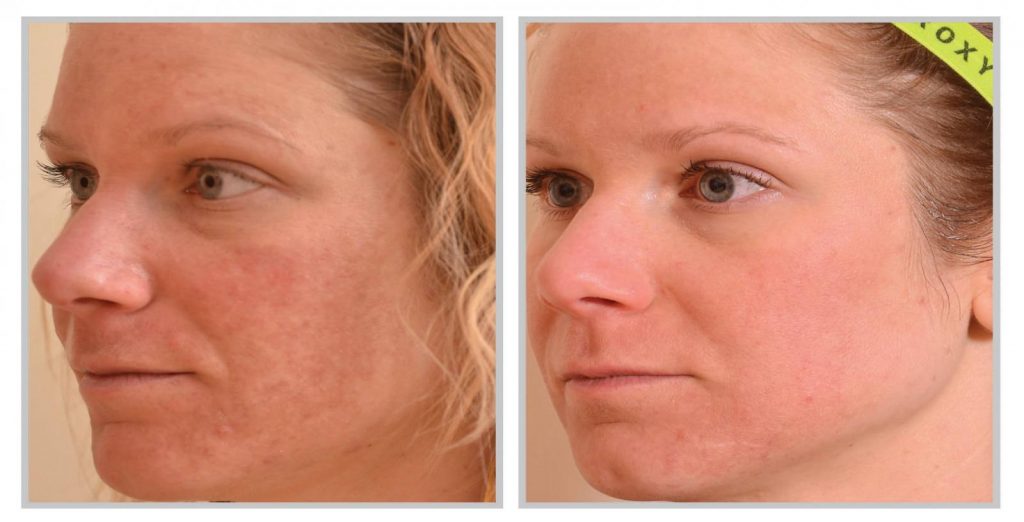Melasma is a chronic, hormonally responsive pigment problem that affects mostly women in their child bearing age. A very common area that is affected is the upper lip, cheeks and forehead. The patches of pigment often have a grey pallor to them and are symmetrical, meaning they occur on both sides of the face. Melasma can be hard to distinguish from post inflammatory hyperpigmentation which is a darkening of the skin that happens after an inflammation is experienced by the skin secondary to things such as insect bites or contact irritation from aggressive peels or other procedures. Post inflammatory hyperpigmentation is seen more commonly in skin of colour, but melasma can occur in every skin type.
Patients with melasma will know that melasma is very sensitive to sun and even a very short unprotected time in the sun will result in a re-emergence of the skin pigment. Medications, especially hormones, pregnancy, certain cosmetics and soaps that contain scents or chemicals that have a phototoxic nature, like citrus oil, can affect melasma as well.
The good news is that melasma can be controlled and improved significantly with the use of topical creams, peels and some well chosen laser treatments. Depending on your skin type, our practice is to use a combination of treatment modalities. Once the pigment is lessened and controlled, the biggest job becomes maintenance. Sun is most certainly an important aggravating factor. Our preference is a physical sunscreen that will reflect a wide range or radiation wavelengths. Some studies have suggested that even fluorescent lighting can affect melasma. Physical sunscreens use zinc or titanium for sun protection, and come in various formulations including powders, lotions and creams. It is important that patients pick the one they like so they use it everyday, even in the winter. Reviewing medications and supplements that might be contributing to the melasma is also important as is looking at lifestyle factors that can impact melasma. Some patients are also very affected by heat and someone who enjoys baking and cooking may find that the concentrated heat of the oven and stove worsens their condition.
One our favourite treatment modalities at SonaMD for melasma management and improvement is the Halo, hybrid fractional laser. This treatment has been a game changer for our patients. The downtime is minimal and the results phenomenal. With the Halo laser, we can treat ALL skin types including highly pigmented, darker skin types.
If you’d like to learn more about melasma, please come in and see us at SonaMD, we would love to talk to you about how to manage this pigment problem.


